The Bar of Vinnytsia region urges the Parliament to refuse approval of the draft law 9055

The draft law № 9055 “On the Bar and Advocacy” was discussed at a joint meeting of Vinnytsia Bar Council and Qualification and Disciplinary Commission.
As a result of the meeting, the advocates defined the draft law as one that poses threat to the independence of advocacy and restricts the rights of advocates comparing to existing relevant Law. Thus, the bar reform can be seen as limiting the rights of citizens to defend their rights and receive full legal assistance.
“With that regard, representing interests of 900 advocates of the region, Vinnytsia Bar Council and Qualification and Disciplinary Commission address Verkhovna Rada of Ukraine and Committee on Legal Policy and Justice with request on the inadmissibility of adoption of the draft law in the proposed edition,” — as stated in the joint request.
Referring to unpopularity of the draft law among practicing lawyers, members of the discussion listed a number of amendments to CPC provided for in transitional provisions of the document. Namely, CPC shall be supplemented by provisions enabling an investigator to question the existence of attorney-client privilege in the documents provided by an advocate. Furthermore, the investigators and prosecutors can involve a defender other than an advocate contracted by the client relying almost solely at their own discretion (Art. 53 of CPC).
Clause 1 of Article 22 of the draft law № 9055 essentially prohibits the use of human rights protection mechanism by the advocates. According to the new draft law, an advocate has no right to claim for disqualification of a judge, filing applications at his own discretion (including the change of preventive protection etc).
Certain actions aimed at the client protection under the draft law can be seen as abuse of the right and lead to disciplinary responsibility of an advocate; or, in special cases, — to the loss of right to exercise advocacy.
According to the draft law, advocates can be restricted from the access to information upon an advocate’s request. The draft law allows officials to enjoy impunity right to deny access to information upon an advocate’s request in any way as one of the grounds for such a denial. Moreover, there is a disciplinary responsibility of an advocate for “abuse of right to advocate’s request”.
The draft law provides for a discriminational restriction of access to legal profession.
Under the clause 3 of article 3 work of the draft law, experience of the lawyers working within businesses and organizations shall not be included to legal work experience required for a bar exam. They will lose their jobs and profession as they can’t esquire the status of an advocate. Along with that the draft leaves the doors wide open for the former judges and prosecutors obviating any need for internship for them.
Article 28 of the draft law prohibits an advocate from working with other clients when he already works under an employment contract.
The requirement for an annual Congress of the Advocates of Ukraine is inadmissible as well. It diminishes the importance of the Congress as such, and will lead to unnecessary costs for their annual observance at the advocates expense. It may eventually result in Kyiv Bar deciding the fate of all advocates as they would be the only ones attending a Congress.
Another point worth noting is attempts of the authors of the draft law to eliminate regional bodies of bar self-government and replace them with the new ones, however, providing for the will of only 10-15% of the advocates working in the region.
Popular news
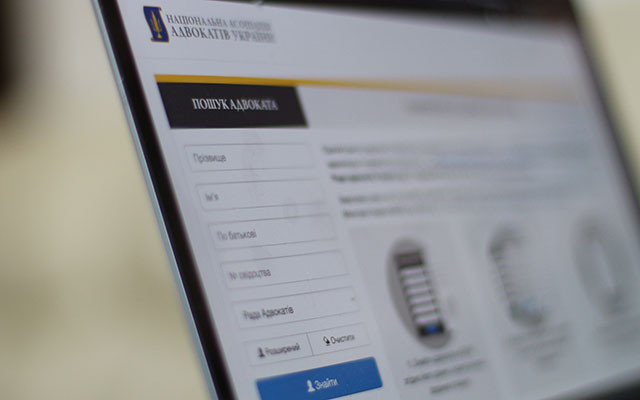
URAU
Access to advocate contacts in URAU has been restored
The Bar Council of Ukraine has opened up public access to data from the Unified Register of Advocates of Ukraine, which was closed at the start of the full-scale invasion in 2022. The decision was made at a meeting on December 12–13.
Self-government
Members of the QDCB are not required to submit declarations - BCU
Bar Council of Ukraine examined the legal status of members of bar self-government bodies and found that they are not required to submit declarations of persons authorized to perform functions of state or local self-government.
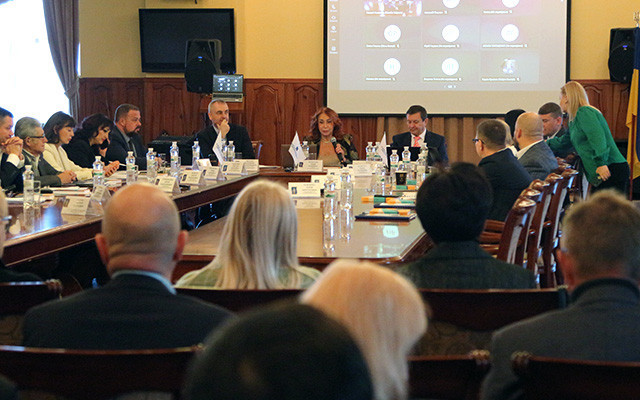
Self-government
BCU has identified 12 areas for implementing the Roadmap for advocacy
During its meeting on December 12, the Bar Council of Ukraine considered the Roadmap on the Rule of Law, approved by Order of the Cabinet of Ministers of Ukraine No. 475-r dated May 14, 2025. The document provides for the development and adoption of a draft law on improving the legal regulation of advocacy by the fourth quarter of 2026.
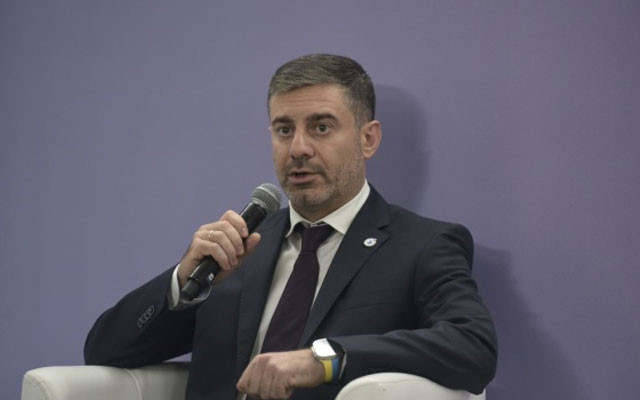
Guarantees of the practice of law
The Ombudsman acknowledged the problem of violation of the human right to legal aid in the TCC
The Verkhovna Rada Commissioner for human rights Dmytro Lubinets confirmed the existence of a problem with ensuring the constitutional right to professional legal assistance in territorial recruitment and social support centers.

Guarantees of the practice of law
The agreement on the provision of legal assistance is not public – BCU
Bar Council of Ukraine in its decision No. 111 dated October 18, 2025, responded to questions regarding the possibility of concluding legal assistance agreements by accepting a public offer, using an electronic form of the agreement, and posting information about legal assistance on websites.
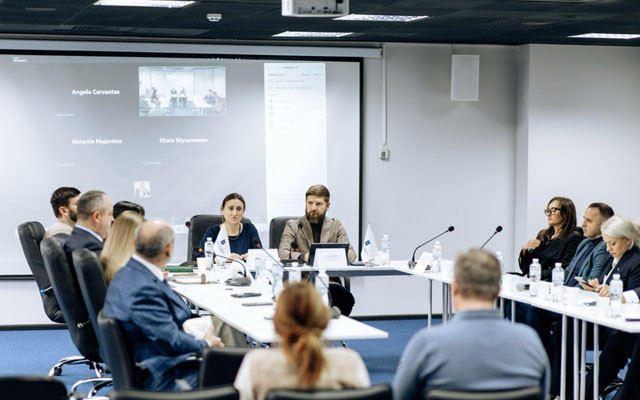
Discussion
Why preventive measures have turned into preventive punishment in Ukraine: round table discussion
The European approach, enshrined in the CPC, provides for detention as an exceptional preventive measure: courts must prove the impossibility of milder alternatives and carefully assess the risks. In practice, however, it is increasingly being applied almost automatically, eroding standards of freedom.
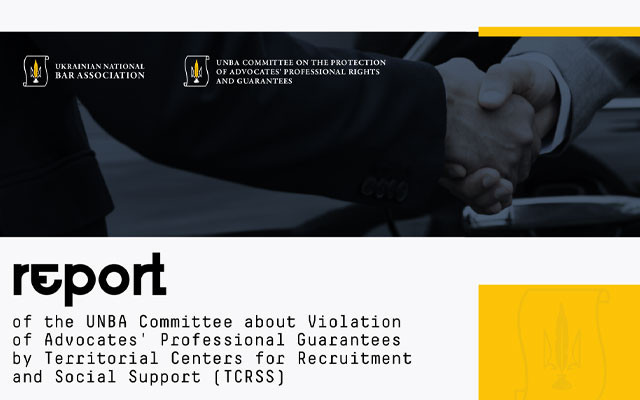
Guarantees of the practice of law
The UNBA presented a report on violations of advocates' rights in the TCC
The Committee for the protection of advocate's rights and guarantees of legal practice of the UNBA has prepared a consolidated report on violations of advocate's professional rights and guarantees of legal practice by territorial recruitment and social support centers for the period from 2022 to the first half of 2025.
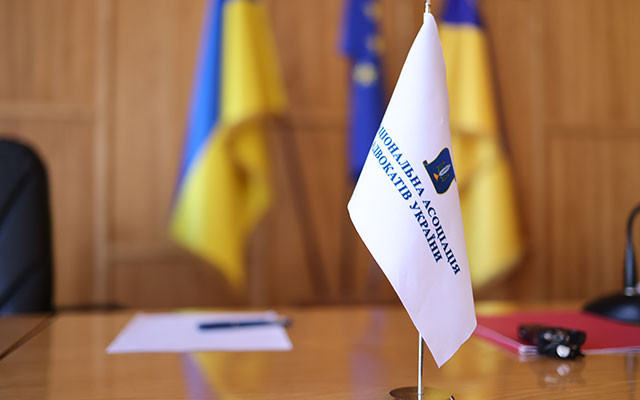
Self-government
Statement by the UNBA Committee regarding manipulative journalistic material
Statement by the UNBA Committee on information policy and interaction with the media regarding manipulative journalistic material aimed at discrediting the advocacy institution.
Publications

Censor.net Protecting advocates – protecting justice: addressing concerns about the new law

Ihor Kolesnykov A BRIEF SUMMARY REGARDING THE APPLICATION OF THE ORDER ON EXTENDED CONFISCATION IN LATVIA REGARDING FINANCIAL ASSETS OF…

Valentyn Gvozdiy WORKING IN A WAR ZONE

Lydia Izovitova Formula of perfection

Sergiy Vylkov Our judicial system is so built that courts do not trust advocates

Iryna Vasylyk Advocacy in the proclamation of Independence of Ukraine

Oleksandr DULSKY When we cross the border of the Supreme Anti-Corruption Court, we get into another department of the National Anti-Corruption…

Vadym Krasnyk The UNBA will work, and all obstacles and restrictions are only temporary inconveniences
